The 4 Best Electric Toothbrushes—Tested and Reviewed
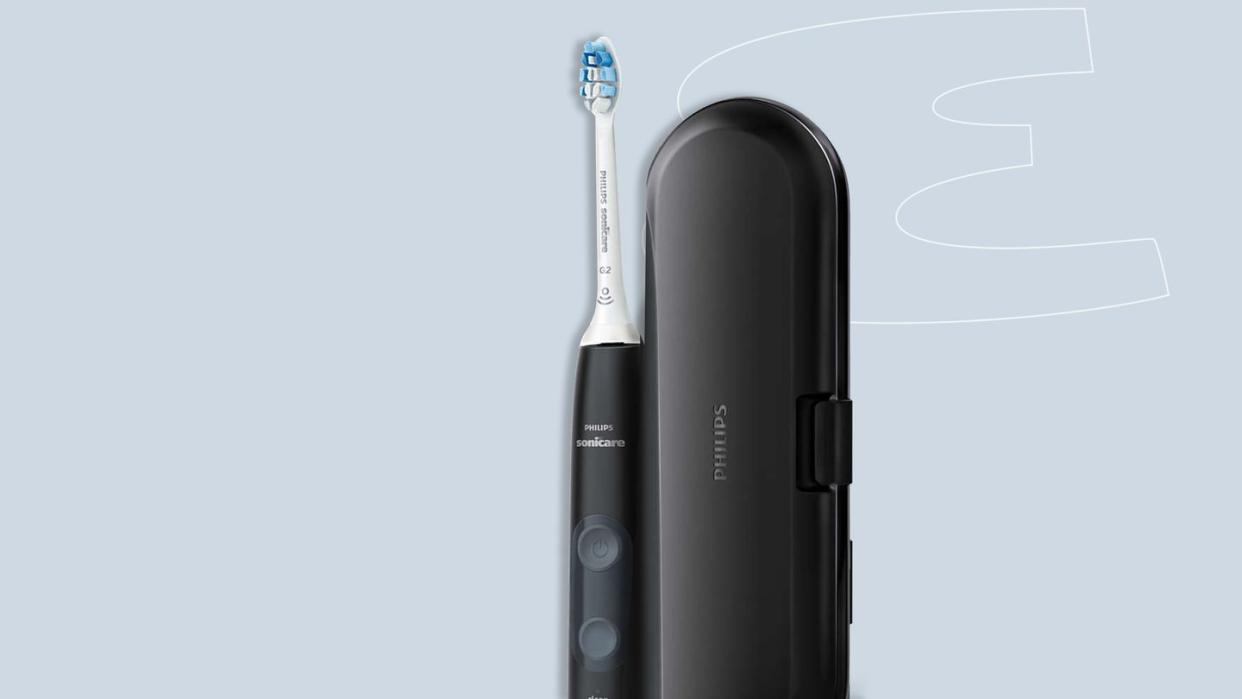
"Hearst Magazines and Yahoo may earn commission or revenue on some items through these links."
What's more fun than talking dental hygiene? Nothing in my opinion. Everyone freaks out about cleaning their body or what workouts they're doing and what workout gear they're buying. But dental health is the one thing you really, really got to stay on top of. But so few people really are on top of it, even though it's ridiculously easy these days.
All you really need is an electric toothbrush. Drill away at your teeth twice a day—once after waking up and having your morning coffee, again before you flop onto your mattress or slip under your sheets. Add some flossing to that nighttime routine (yes, please dear God, you need to floss) and you're good. It's so easy.
But, actually knowing which electric toothbrush to buy isn't easy. There's a bunch of models, from consumer classics to startup brands, claiming to be the best. There's different styles. There's different models. It's all too complicated. So, I did the hard work. I've tried pretty much every electric toothbrush on the market, and I'm here to tell you which ones are actually worth your money.
Pro 1000
As with everything vaguely tech enabled, the trend with electric toothbrushes has been to ratchet it up. Certain models pair with your phone for data collection and brushing tips. Other models coach you in real time. Some have haptic feedback. Whatever.
This Pro 1000 from Oral-B is the best electric toothbrush on the market because it's simple. The head oscillates, pulsates, and rotates—in english this means it physically moves in multiple directions. It gives you four quadrant timers within the two-minute brush time. And, it tells you if you're pressing too hard, because that can be tough on your gums. That's it. That's all you need, really. Buy this toothbrush today, and you can use it for the next two decades.
"Studies" in the dental world are a bit funny, because the big players usually have a hand in them. Generally though, oscillating toothbrushes tend to perform better in neutral trials. That makes logical sense, when you considered a lot of the cleaning in a dental office is physical. Your hygienist is scraping plaque off, not using a vibrating tool.
Oh, and new brush heads cost about $4 (name brand) and $1.50 (off-brand) each. Nice and affordable.
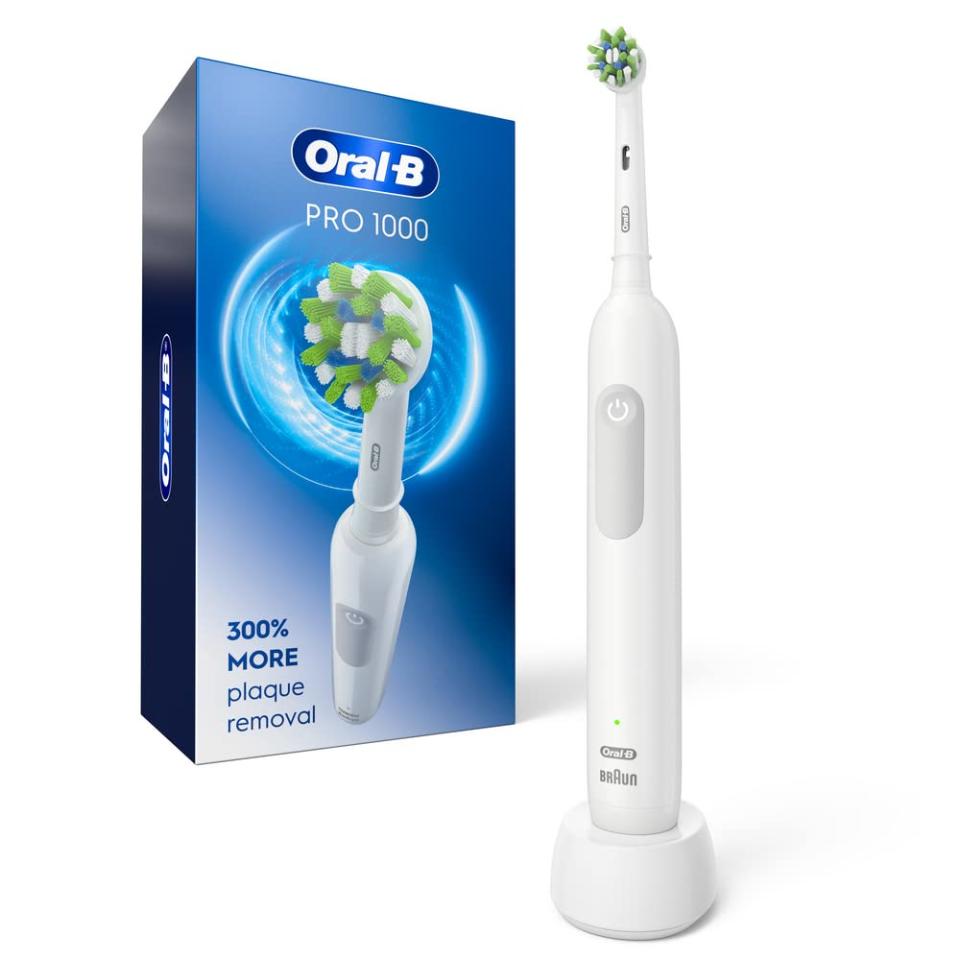
Pro 1000
amazon.com
$49.94
5300
Those rotating brushes can feel a bit uncomfortable, though. Some don't like the physical scrubbing feeling. The industry's answer to that was the vibrating brush head. Like I said, oscillating brushes tend to perform better in trials, but as a user... I can say they almost always perform at the same level. As with anything, it's about being consistent. Oscillating vs. vibrating is a personal preference. I like the low-effort, carwash feel of oscillating, but a lot of people prefer vibrating toothbrushes.
For vibrating toothbrushes, Philips Sonicare is the name you want to stick with. Like Oral-B has with rotating models, Philips has a whole roster of vibrating brushes. After testing, I'd recommend the 5300. It's not that much more expensive than lesser models, but it's got some key upgrades—like alternate brush modes and reminders to replace your brush head.
That said, Philips replacement heads tend to be more expensive, as they have a more specialized shape. Expect to pay around $10 per replacement.
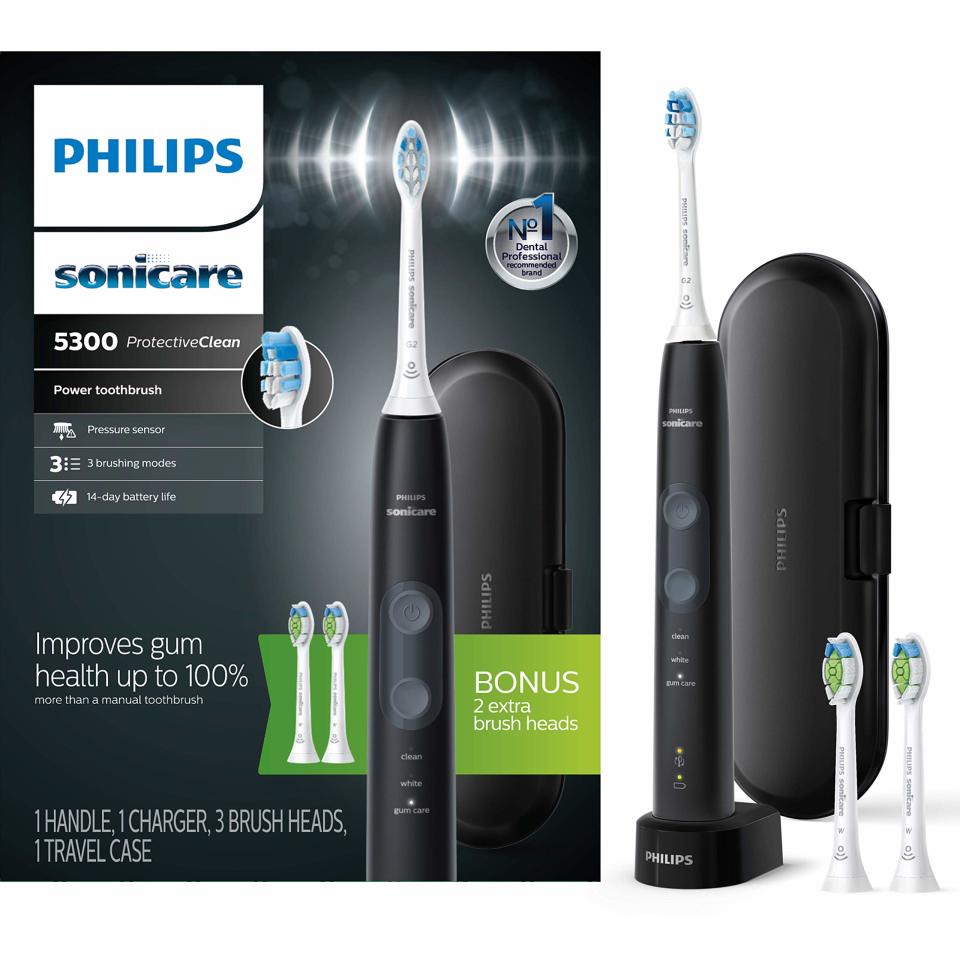
5300
amazon.com
$109.96
hum
Another vibrating option is Colgate's hum. Though not as powerful as Philips Sonicare brushes, the hum has one massive benefit: Travel packing. That's why we've already endorsed this thing. The battery lasts a lot longer than other electric toothbrushes, and the travel case makes it easy to toss in a dopp kit.
As for the brushing, this one felt a bit more... regular, like a tech enhanced corner store toothbrush. It's lighter than the other options, and the vibration is quite as intense. If you're new to the electric toothbrush world, this would be my recommendation.
As for replacement heads, they cost a lovely $5 each.
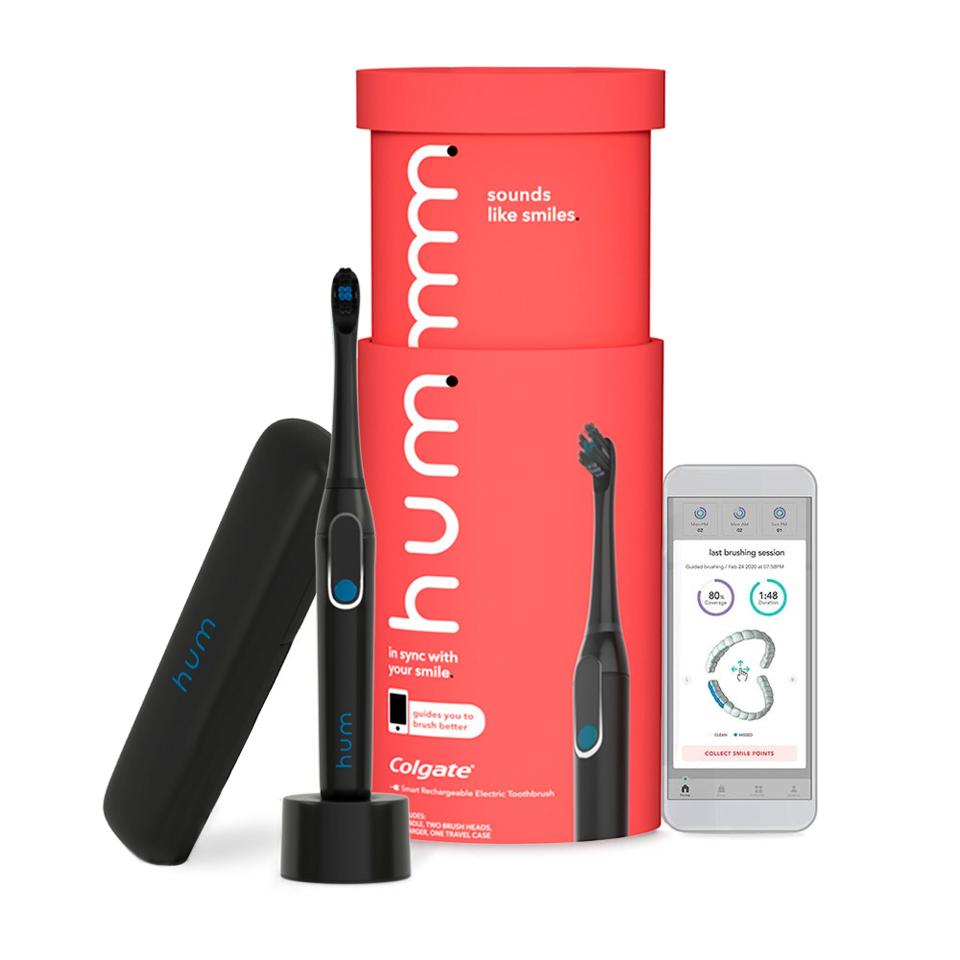
hum
amazon.com
$37.19
Complete Care 5.0
If you're really a freak about your dental hygiene, or if you're just afraid of flossing (not valid, shut up) and it's environmental impact (valid), Waterpik makes a nice brush-pick combo.
The brush is really, really similar to that Philips Sonicare. It feels the same in hand. It has the same three settings. Plus, the vibration feels about the same.
In testing, there was nothing to fault besides the actual size of the thing. You need some counter space to store it, so it's not ideal for small apartment living.
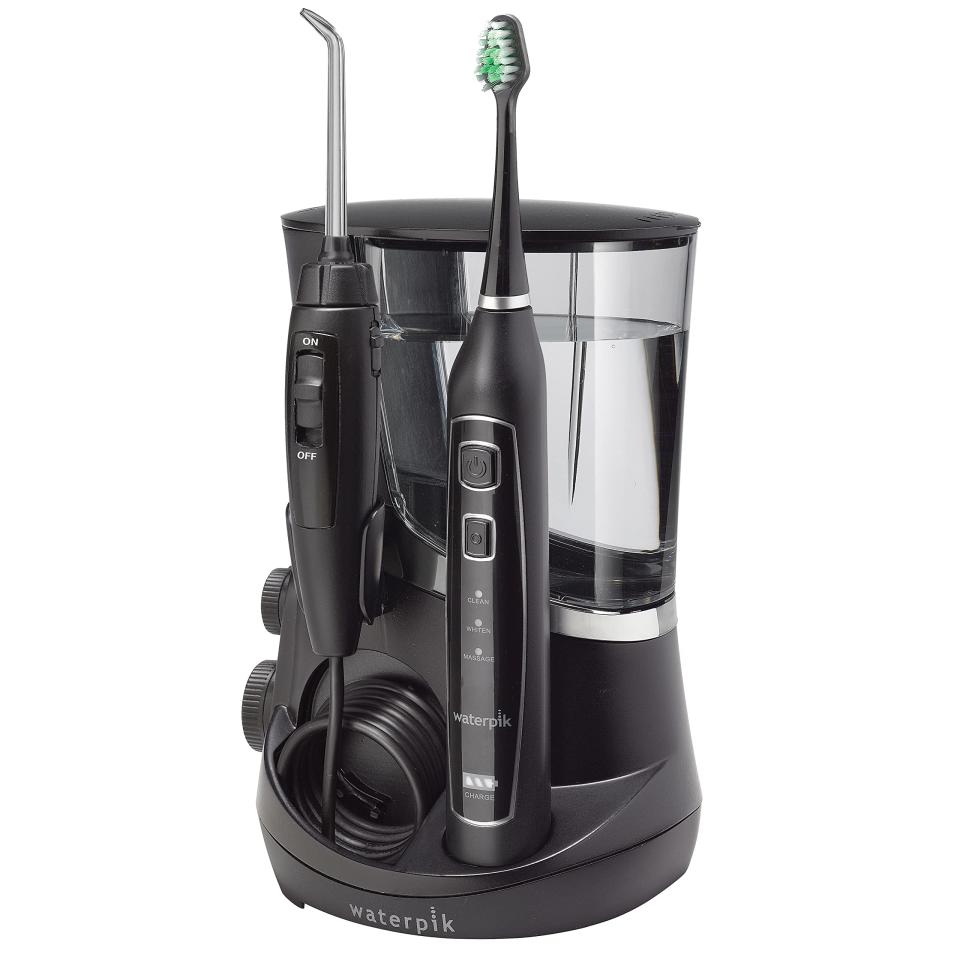
Complete Care 5.0
amazon.com
$105.00
Rotating vs Vibrating, Which Brush Type is Better?
Sorry to do this, but the answer is a very lukewarm: Ehhh, up to you. No, listen that's really the case.
In clinical trials, there's a slight, very slight, bit of evidence that says rotating brushes are better. The scrubbing action removes a ton of plaque, and the circular heads are better for getting in every nook and cranny. If that's what you want to hear, cool. Buy a rotating brush.
But honestly, vibrating brushes do just as good of a job. In all the years when I've switched between the two, my dentist has never been able to tell. What's most important is consistency. Use either type of electric toothbrush twice daily, and you're almost guaranteed to have clean teeth. With nothing more than a $50 electric toothbrush, it's honestly difficult to let them get dirty. So, it's mostly down to personal preference between the two styles:
Rotating - A dentist office, deep clean feel feel. These brushes are a bit more physical than their vibrating counterparts.
Vibrating - Feel a bit more like regular toothbrushes. Not as harsh on the gums, but require a bit more work when getting behind and around teeth.

You Might Also Like

